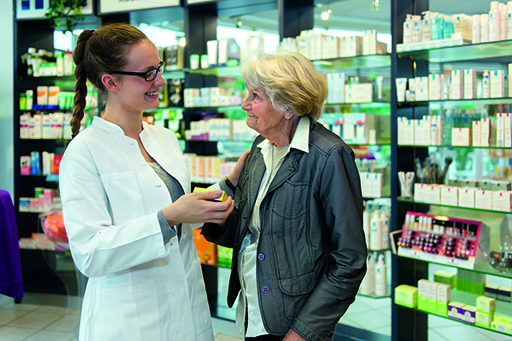Recognise the social care of pharmacy
In Services Development
Follow this topic
Bookmark
Record learning outcomes
Community pharmacies do much more than dispensing medicines and providing commissioned services. Much of their support for communities is not recognised, says Mike Smith, non-executive advisor at Alliance Healthcare
Q. Does community pharmacy do a lot to support the vulnerable and elderly?
Undoubtedly. The enemy of many elderly people, apart from chronic medical conditions, is loneliness. There is an important domiciliary role for community pharmacists and their teams here. Our delivery drivers also have an important function with their face-to-face interactions.
I have no doubt that pharmacy teams prevent patients entering secondary care with our social care activities. We keep patients out of hospital.
As questions grow over the affordability of unpaid services in pharmacy and workload continues to increase, there is a real danger that there will simply be less time to give to people in this way – and, sadly, it is the most vulnerable patients who will suffer.
Q. Do you recognise the scenario of the elderly patient who visits the pharmacy often, and whom you suspect is simply there for a chat?
In my experience this happens on an almost daily basis. I recall one Saturday afternoon when an elderly gentleman came into my pharmacy to talk about his health. We talked for maybe 15 minutes. His problem was that he was lonely – he had lost his wife three months before. There was no supply of medication or sale – so no revenue involved – but, of course, we had offered a service.
This is a classic example of our real social function provided across the UK by community pharmacy. Without me, where would this man have gone on that day, and what repercussions could there be if he didn’t have that readily available support from our profession?
Q. What do delivery drivers do that’s extra to their medicine delivery function?
Pharmacy delivery drivers do so much more than we would imagine. I immediately think of Shirley Jamieson from Bedminster pharmacy in Bristol – a driver winning awards for the valuable support she gives to the patients she serves on her daily delivery rounds.
I have recently spoken to Chris and Frank, two excellent drivers from Lewis Pharmacy in Exmouth. Chris found a lady fallen on the floor in her flat who couldn’t get to her alarm. Frank has called an ambulance several times for people and asked the pharmacist on several occasions to phone about a patient he has been concerned about.
All drivers, I know, are frequently asked to post letters, put bins out, tie shoelaces, etc. Chris has another story of coming to a patient’s home where the alarm company were trying to get her to respond and being able to tell them she was okay.
Q. What might be the consequences if pharmacy didn’t step in to help?
Simply put, if pharmacists couldn’t offer this support then many patients across the country would not be able to stay in their homes.
Over the years, I have counselled many patients who have just been diagnosed with a new condition, eg diabetes or hypertension, and they are often frightened and confused by what the GP has told them.
A key part of the process in supplying their medicines is to ensure that they fully understand their medical condition, the medication prescribed and the importance of compliance. If patients are unable to take their medicines correctly, this can lead to more patient admissions.
Q. How do you recognise someone who is vulnerable or needs more of your time?
All pharmacists can recognise this – it is in our DNA. A pharmacist can tell by a patient’s body language how to approach these conversations and by sensitive questioning.
Sadly, there are many gaps in care for people with dementia and living at home, for example, and this is a growing concern. Our pharmacist and their teams do as much as they can, but with limited resources, and the continued pressure resulting from the pharmacy cuts, it is increasingly difficult to try and support these people.
It is important to remember that we do not get paid for this, and until that is addressed it is very difficult for our profession to sustain the growing level of support for these people that’s needed. What would happen to such people if pharmacy teams were replaced by robots?
Q. What other examples do you have where community pharmacy supports patients, families and carers?
Jackie Lewis from Lewis Pharmacy in Exmouth specialises in domiciliary palliative care support – her work is recognised and applauded by GPs and alike. It also receives credit from the Hospiscare@Home service. I know of others that also carry out this very commendable work.
People with learning difficulties may often turn to community pharmacy for advice and we provide it free of charge without appointment – yet another service that is often unrecognised by our stakeholders.
As a pharmacist, I have been been asked to do things like writing letters on behalf of families who live in substandard, damp and mouldy accommodation that has led to illness, such as childhood asthma. I have supported carers. I have also been asked for advice about loft insulation! I’m sure I am not alone in these
kinds of conversations.
Q. Do you think this is this a topic that needs to be discussed and debated more formally in some way?
Absolutely. I have only scraped the surface here and much more formal research and reporting needs to be done. Maybe then our payers will realise just how much unpaid and vital work community pharmacy undertakes. I urge this to happen as soon and as much as possible.

